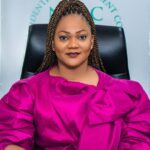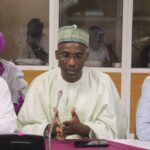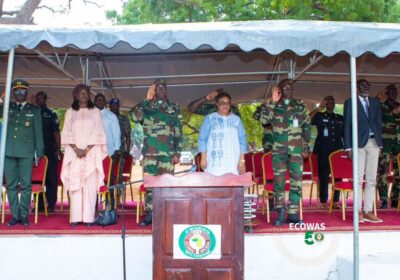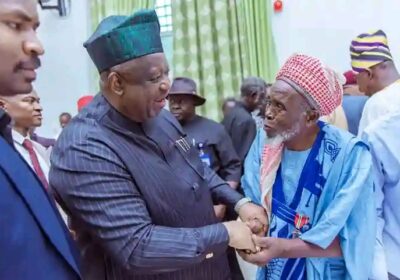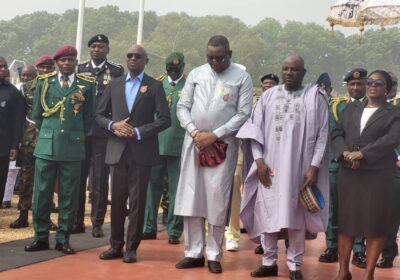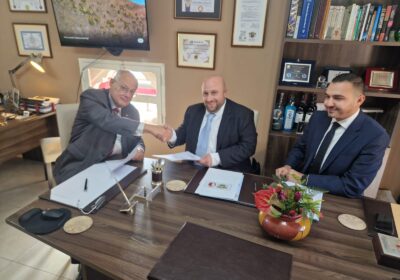Nigeria Embraces Strategic Autonomy as New Foreign Policy Doctrine–Tuggar Warns Against Ideological Alignment, Champions Africa-Centric Global Engagement.
By Raymond Enoch.
Nigeria is charting a new course in its foreign policy direction, moving away from ideological alignments and dependency towards what the Minister of Foreign Affairs, H.E. Yusuf Maitama Tuggar, OON, described as “Strategic Autonomy” — a pragmatic, interest-based approach to diplomacy grounded in national priorities and Africa-first principles.
The declaration came during a keynote address delivered by the Minister at the Nigerian Institute of International Affairs (NIIA), Lagos, on Friday, 12th September 2025. The speech, which was released by the Ministry of Foreign Affairs through Press Release No: MFA/PR/2025/85 and signed by its spokesperson, Kimiebi Imomotimi Ebienfa, outlined the country’s recalibrated foreign policy vision under the Tinubu administration.
Titled “Navigating Realities: Aligning Nigeria’s Foreign Policy Practice with Emerging Global Dynamics,” the Minister’s lecture traced Nigeria’s diplomatic history from the non-alignment era of the Cold War to the economic restructuring of the 1980s, arguing that the country must now define its international engagements on its own terms. “Strategic Autonomy is not hypocrisy — it is pragmatism,” he said. “Binary alignments do not serve the interests of a country with Nigeria’s size, scale, and potential.”
Recalling Nigeria’s past entanglements with the Structural Adjustment Programmes (SAPs) imposed under the Washington Consensus, Tuggar cautioned against a return to externally dictated policy paths. He referenced Nigeria’s principled positions during the Cold War — including its support for the MPLA in Angola and anti-apartheid activism — to show how the country previously navigated global power struggles through diplomacy anchored in national interest and intellectual support from institutions like the NIIA.
The Minister introduced the 4Ds — Democracy, Demography, Development, and Diaspora — as the new pillars of Nigeria’s foreign policy outlook. This approach, he explained, is built on forming issue-based relationships and avoiding entangling alliances. “Our foreign policy must not be a function of others’ insecurities. It must be rooted in our people’s aspirations,” Tuggar stated, adding that Nigeria must preserve the flexibility to respond dynamically to emerging global realities.
Responding to concerns about democracy being used as a tool of external influence, Tuggar emphasized that Nigeria supports an African-owned definition of democratic governance. “No one holds a patent on Democracy. It is time Africa tailored its democratic practices to reflect our histories, cultures, and aspirations,” he said. He announced the creation of the Regional Partnership for Democracy (RPD), a collaboration between the Ministry and the UNDP aimed at strengthening democratic institutions across West Africa and the wider continent.
He also praised the Nigerian Institute of International Affairs for its legacy of providing intellectual direction to the nation’s foreign engagements, especially during volatile global periods. Citing William Wallace, the Minister remarked, “International Relations is not an innocent profession. It must bring reason and debate into governance.” Tuggar called for deeper synergy between policy thinkers and practitioners to ensure Nigeria is never blindsided by fast-moving international developments.
Throughout the address, the Minister’s tone was clear and confident: Nigeria, with its large population, internal market strength, and growing global relevance, must no longer act like a nation waiting to be led. “We are not a nation in need of rescue. We are a nation ready to lead,” he declared to resounding applause from the diplomatic and academic audience gathered at the NIIA.



